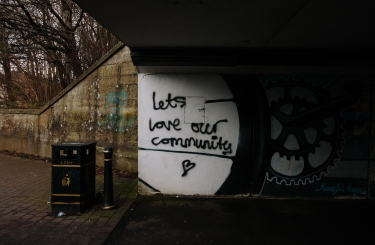Related

Last week we hosted a briefing for funders about supporting communities affected by the racism, violence and islamophobia. You can catch up on the recording and some of my reflections from the session if you missed them.
Our panel talked about how funders can help meet the immediate costs and needs created by the damage and violence of the past few weeks, and welcomed the solidarity already shown by so many of you. They also urged us to think about how funding can support the longer-term work needed to build trust, challenge hostile environments and narratives, and deal with the structural and systemic nature of these issues. As part of this we know that we need to stand with communities as they advocate, organise and lead, supported by the social infrastructure that amplifies, enables and champions change.
Since the session we’ve heard more about what some of our members are doing in terms of practical steps to make this happen. Please continue to share your thoughts and plans with us, as it’s incredibly useful to both inform and align action across the funding community.
A strong message to come out of the session last week as well as the ongoing conversations we’re part of is that this needs more than an immediate response. We’re aware of work underway by several collaborations and organisations looking at longer term action within their areas of focus, including Social Justice Funders network in the advice sector, Children in Need around young people, as well as Funders for Race Equality Alliance and the Migration Exchange – and have shared links to these with members. We’re continuing to support some of these conversations and will continue to explore the role London Funders can play in these as they develop.
So, if you’ve put changes in place, are thinking about how you can support longer term work in this area, or want to explore how you might collaborate with others to pool resources and expertise to support this, please reach out to continue the conversation and help make change happen.
